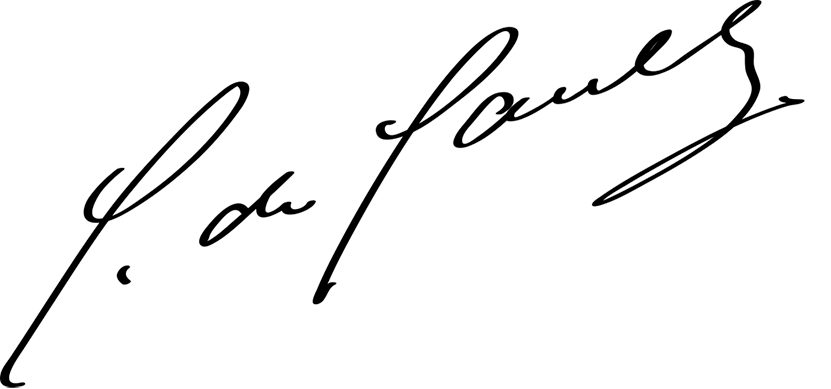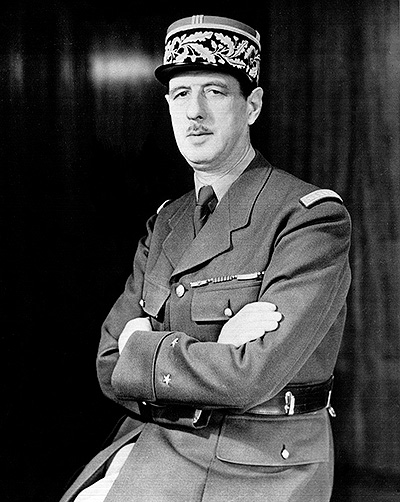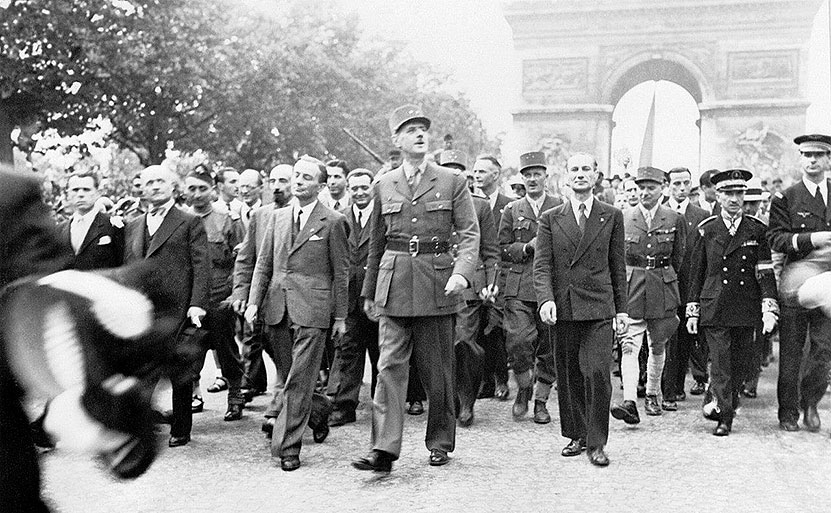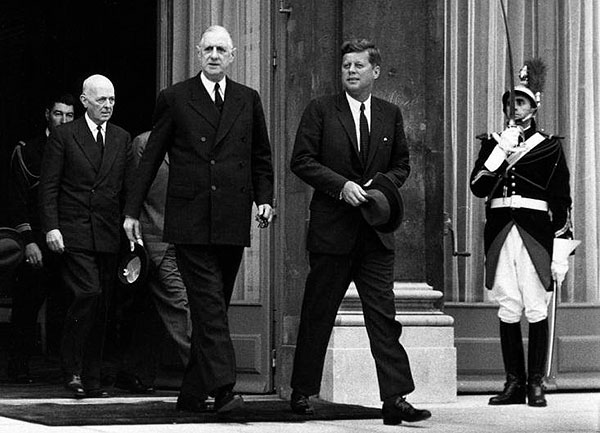Think
Greatness and Failure: De Gaulle and Politics
Pablo Perez Lopez, Full Professor of Contemporary History of the
School Philosophy y Letras, commemorates the 50th anniversary of the death of the great architect of the
death of the great architect of the Fifth French Republic.
A originally published in
article The Conversation.

signature by Charles De Gaulle. Wikimedia Commons / See link
The words with which Charles de Gaulle begins his Memoirs are well known: "I have always had a certain idea of France". The history of his country so impressed him that his greatest dream was one day to render it "distinguished services".
 |
|
De Gaulle during World War II |
He chose a career in arms to do so. The Great War of 1914 seemed to be his golden opportunity. It surprised him as a young captain, caused him repeated physical wounds from which he recovered, and a morale that was harder to bear: he was taken prisoner at Verdun, and spent the last two years of the war in solitary confinement. His repeated attempts to escape ended in his capture.
The way the French command conducted the war disappointed him greatly....
He had missed his big chance. As best he could, he rebuilt his degree program, largely in the shadow of Pétain, the hero of Verdun, who had to defend him from the bad reception that the professors of the technical school de Guerra gave to this conceited officer who disagreed with their strategic doctrines. He wrote a military history of France and clashed with Pétain over it.
Convinced that an army had to be built around armoured divisions, he published a book about it. He was listened to in Germany, but not in France. He sought to influence politics to make himself heard. He made his bet and cultivated the friendship of Paul Reynaud.
He was already in his fifties when his country again went to war with Hitler's Germany. France then decided, late and wrongly, to organise armoured divisions and entrusted its government to Paul Reynaud, who called de Gaulle into the government to implement his theses.
Convinced that the war would be a long one, when the government was already in Bordeaux, he negotiated a close alliance with the United Kingdom to continue the war from the Empire. Reynaud proposed this to his government, which rejected the move. He had failed again. He rebelled against this cession led by Pétain and marched to London to continue the war in the name of "free France".

De Gaulle during the liberation of Paris in 1944. Wikimedia Commons / See link
From pariah to national hero
He convinced Churchill that it was possible, but not his country's authorities, who deprived him of his nationality and condemned him to death. He did not care: through a sea of difficulties he managed to make his bluff succeed: France ended the war fighting among the victors and aspiring to regain its greatness. De Gaulle, from being an outcast, came to symbolise the Resistance, the reconciliation of the country over the wounds of collaboration, and the rejection of Vichy.
Back in France, the hero of the Liberation was confronted with parties that practised the opposite of what he understood to be the pursuit of the national interest. Disappointed, he resigned in the hope that he would soon be called back to clean up the mess. In vain: nobody called him back. For politicians, it was real life far from the reverie of this symbol of the Resistance, who did not understand political reality. According to him, it was the triumph of the mediocrity of a few politicians, the prologue to a disaster.
And disaster struck. In 1958, France, because of Algeria, ended up in a status of political breakdown and rebellion. De Gaulle manoeuvred behind the scenes with extreme skill, and appeared as the solution to a dead-end problem. He returned, redesigned the political system and founded the Fifth Republic, which changed the parliamentary model to a presidential one.
French greatness
The solution to the Algerian problem cost him the hatred of ultra-nationalists who tried almost twenty times to end his life. In the meantime, he was engaged in politics to restore French greatness. This time he knew how to move and, for ten years, he deployed with skill all his talent for convincing from power.
Not everyone was convinced. In 1968 he faced a new rebellion that put him in the crosshairs of criticism. He managed to master the last storm of his life, and to win popular favour at the ballot box. But he did not like the situation. Convinced of the need for far-reaching reforms, he proposed them in a referendum and, losing the referendum, resigned.

De Gaulle during the liberation of Paris in 1944. Wikimedia Commons / See link
"There is no policy outside the realities".
He never ceased to think that "there is no politics outside the realities", and also that "France cannot be France without greatness". It might seem a contradiction, but there is no such contradiction: "On the slope on which France stands," he wrote, "everyone encourages her to go down, while I never cease to pull her up".
It is worth as summary what he meant by doing politics with greatness as a horizon. In the end, that was the outstanding service he rendered to his country. This desire to aspire to something great, to flee from mediocrity, is the reason why he is remembered with awe.
As he noted as a young man on his diary: "Ta pathemata, mathemata".we learn by our sufferings. And politics is no exception. It is necessary to fail in order to realise a great dream.






